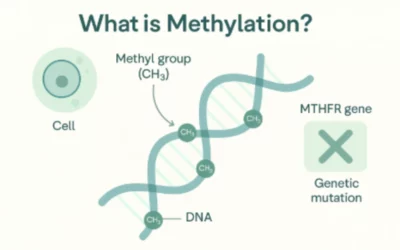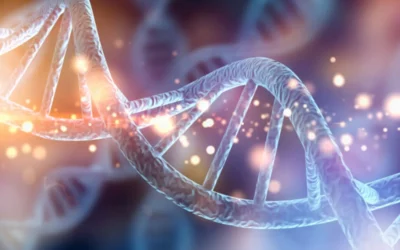Methylation
Evidence-based information
Introduction
Methylation
Methylation is a biochemical process that takes place in every cell and tissue of our body continuously, millions of times per second. Methylation is a relatively basic operation from the point of view of the functioning of the body, thus it has a central role in the creation and transformation of a series of vital substances (e.g. ATP, creatine, carnitine, CoQ10, melatonin, serotonin, taurine, glutathione, etc.), in this way the physical and psychological in maintaining our health.
Among other things, methylation has a role in cell division, DNA and RNA synthesis, in the repair of our DNA, in the proper functioning of our immune system, including, for example, inflammatory processes, in the transformation of toxins and hormones, in the synthesis of neurotransmitters (e.g. norepinephrine, thus the stable psychological state in its design), and we could list more. In fact, proper methylation is the key to the functioning of all our cells and tissues, i.e. without it, nothing would work at all.
Methylation and Autism
Many autistic children have reduced methylation and antioxidant/detoxification capacity, as well as chronic oxidative stress. A targeted nutritional intervention designed to correct the metabolic imbalance can normalize their metabolic profile and improves autistic behavior.
Methylation and BloodSugar Balance
Does your day start with a rushed coffee, spike around school‑run time, dip at 3 p.m., and limp toward bedtime with nothing left for yourself? You...
Improving Brain Function in Autism
Supporting the development of a young child on the autism spectrum requires a multifaceted and highly individualized approach. This is especially...
How the Methylation Process Works in the Human Body
Methylation might not be a word you hear every day, but it’s one of the most important processes happening in your body—billions of times per...
Folinic Acid Autism Link: Understanding Cerebral Folate Deficiency
Folate, a vital B vitamin, plays an essential role in brain development, cognitive function, and mental well-being. While many people associate...
What Is Methylation? Understanding The Body’s Essential Biochemical Process
Methylation is one of the most vital and fascinating processes in the human body — yet it's still unfamiliar to many people, even those who are...
Top Methylation Support Supplements You Should Know About
Methylation is one of the most important biochemical processes in the body — yet it’s often overlooked. It influences everything from gene...
How to Balance Glutamate and GABA Naturally
Your brain thrives on balance — especially between two key neurotransmitters: glutamate and GABA. Glutamate excites neurons, powering cognition and...
Autism and glutamate: Understanding the Neurochemical Link
Autism spectrum disorder (ASD) is a complex neurodevelopmental condition with a variety of biological contributors. One area gaining increasing...
Detoxification with MTHFR mutations – Why is it harder?
Detoxification with MTHFR mutations is much harder than detoxification under optimal circumstances. Methylation is crucial for the body’s ability to...









